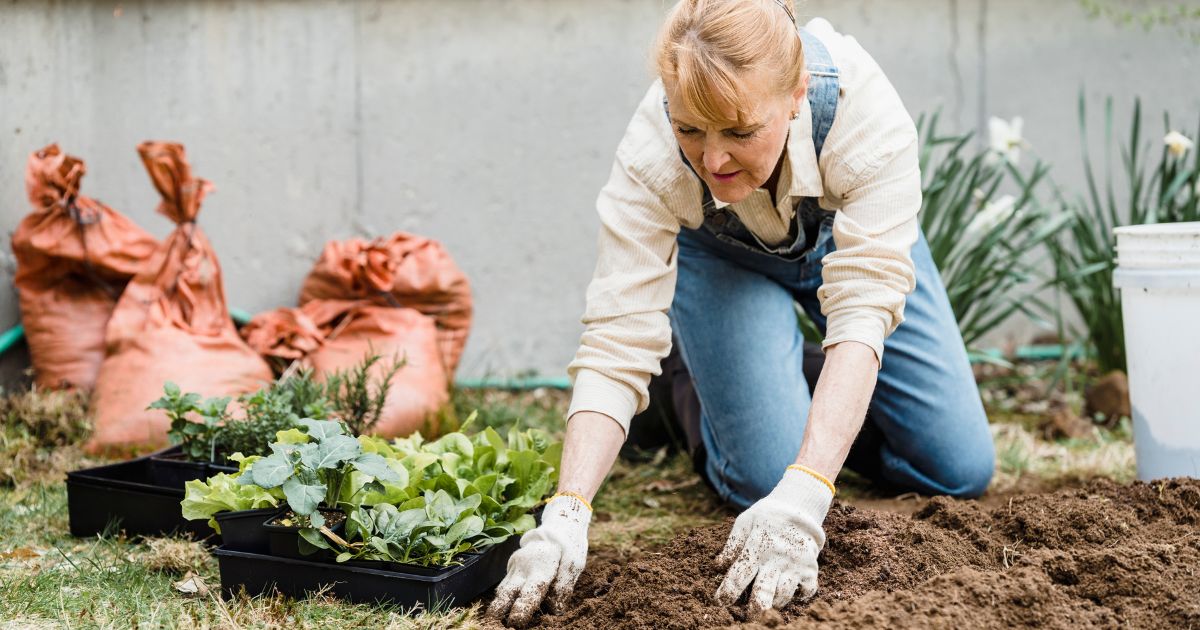Gardening is often seen as a relaxing and rewarding hobby, but not all advice is as fruitful as it seems. In fact, some popular gardening tips can actually do more harm than good.
Here are 15 gardening tips that could backfire, along with actionable insights to keep your garden thriving.
1. Over-Watering Plants
Water is essential for plant health, but too much of it can lead to root rot and plant diseases.
It’s crucial to know the water needs of your plants and adjust accordingly. Generally, it’s better to water deeply and infrequently than to water a little every day. Check soil moisture levels before deciding to water.
2. Planting Too Close Together
While it might be tempting to plant densely for a lush garden, overcrowding can cause plants to compete for nutrients, light, and water, leading to stunted growth. Give your plants adequate space to ensure they have room to grow and receive proper air circulation.
3. Ignoring Soil Quality
The foundation of a healthy garden lies in its soil. Ignoring soil quality can lead to poor plant growth and health issues. Test your soil’s pH and nutrient levels, and amend it with organic matter or fertilizers as needed to provide a nourishing environment for your plants.
4. Using Pesticides Indiscriminately
Pesticides can help manage pests, but using them without discretion can harm beneficial insects and pollinators, disrupt ecosystems, and even damage the plants themselves. Always follow label instructions and consider natural pest control alternatives where possible.
5. Over-Fertilizing
Fertilizers are essential for plant growth, but using too much can burn roots and cause nutrient imbalances. Follow recommended application rates and timelines for the specific plants in your garden. Less is often more when it comes to fertilization.
6. Neglecting to Mulch
Mulching helps retain soil moisture, suppress weeds, and regulate soil temperature. Failing to mulch can lead to water loss, increased weeds, and temperature fluctuations, all of which stress plants. Invest in organic mulch types like straw or wood chips to benefit your garden.
7. Pruning at the Wrong Time
Pruning is essential for plant health and aesthetics, but doing it at the wrong time can damage plants and reduce flowering. Understand the specific needs of each plant in your garden and prune accordingly, usually after the flowering period or during dormancy.
8. Using the Wrong Plants for Your Zone
Plant hardiness zones exist for a reason. Choosing plants unsuitable for your climate can lead to poor growth or death. Ensure you select plants that are well-suited to your local climate conditions for a flourishing garden.
9. Failing to Rotate Crops
Crop rotation prevents soil depletion and limits pest and disease buildup. Ignoring this practice can lead to reduced yields and increased problems. For a productive garden, rotate your crops each season, especially in vegetable gardens.
10. Improper Planting Depth
Planting seeds or transplants too shallow or too deep can lead to poor germination and root development. Follow guidelines for each species’ preferred planting depth to ensure healthy growth right from the start.
11. Ignoring Sunlight Needs
All plants have specific sunlight requirements. Placing a sun-loving plant in full shade or vice versa can result in poor growth and flowering. Assess the sunlight levels in your garden and match plants to suitable spots.
12. Neglecting Pest Management
Ignoring pests can lead to severe plant damage and disease transmission. Regularly inspect your garden for signs of pest activity and take prompt action. Use integrated pest management techniques to minimize harm to beneficial insects.
13. Improper Composting
Composting is a great way to recycle organic waste, but improper composting can attract pests and produce foul odors. Ensure that only compostable materials are added, and maintain a balance of green and brown materials for effective composting.
14. Failing to Consider Plant Maturity
Plants grow bigger over time, and failing to consider their mature size can lead to overcrowding and maintenance issues. Plan your garden layout with mature plant sizes in mind to ensure long-term success.
15. Ignoring Seasonal Changes
Gardens require different care at various times of the year. Ignoring seasonal changes can lead to plant stress or death. Stay proactive with seasonal tasks like mulching, pruning, and protecting plants from extreme weather conditions.















